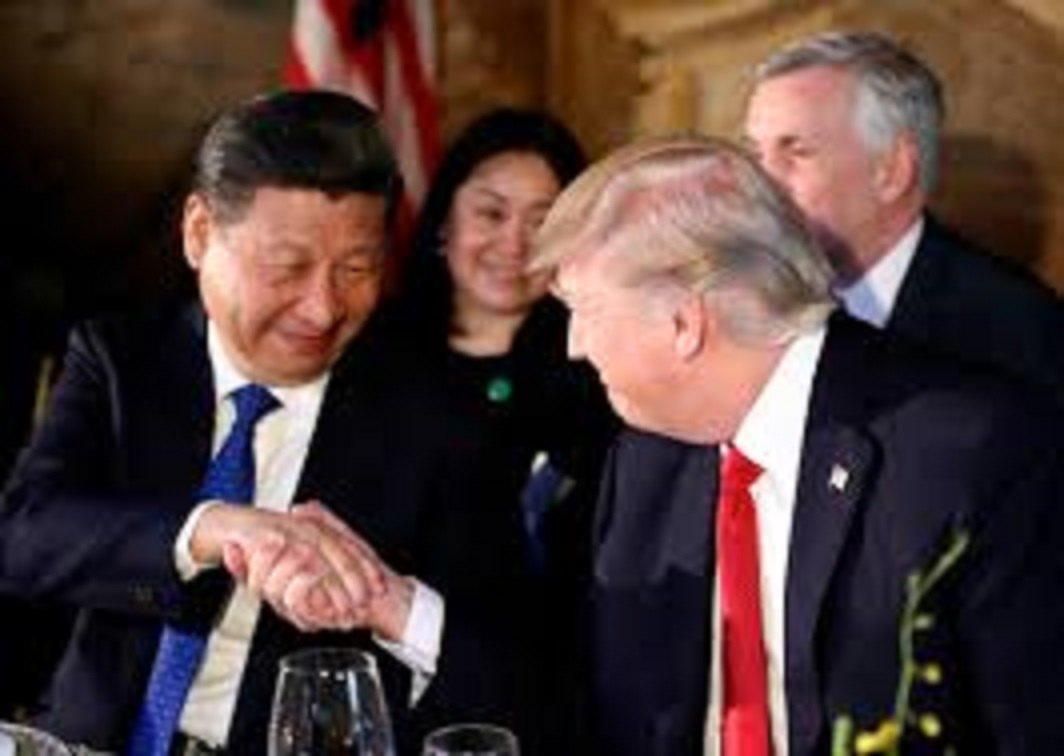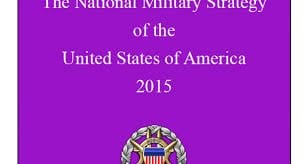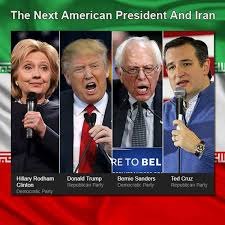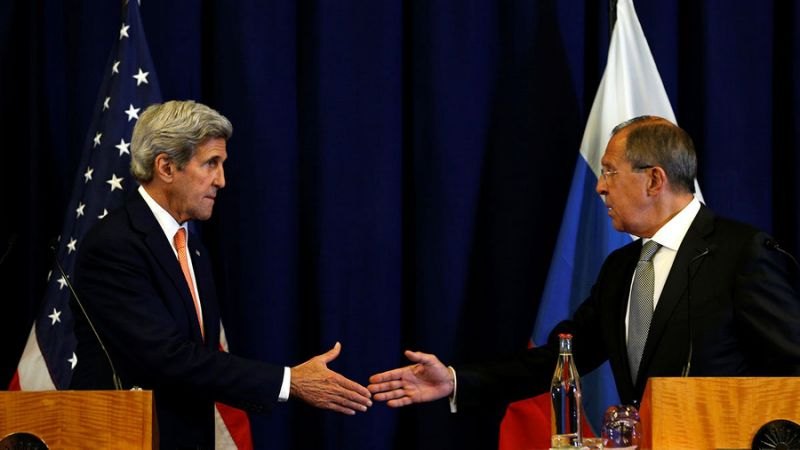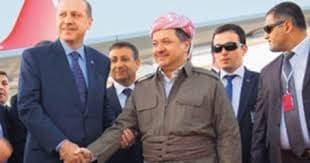The US and the JCPOA: Alternatives and Strategies
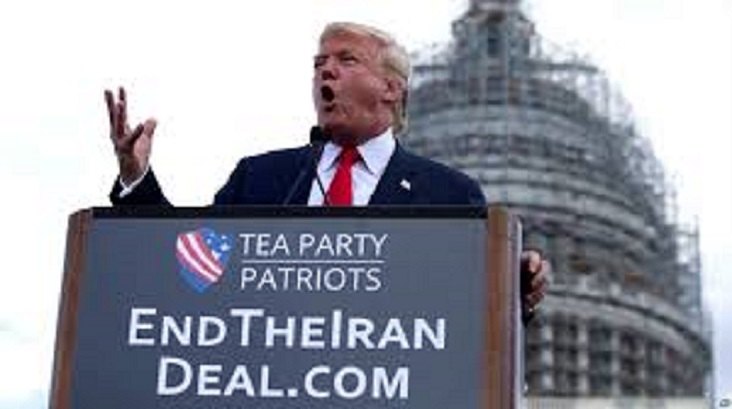
Dr. Mahmoud Yazdanfam
Trump’s Policy towards the JCPOA is not completely clear and decisive and several factors are involved in its formation namely; his new security team, the intensification of tensions in Moscow-Washington relations, the firm support of Europe to maintain the JCPOA, the relations between Iran and Europe, the invasion of the three Western powers to Syria and last but not least, the developments in the Korean Peninsula.
The tension between London and Moscow over the death of a former Russian spy in Britain and the escalation of the Syrian crisis through the use of chemical weapons have lead to the closeness of the US to its Western allies as well as more confrontation with Russia.
Europe stands in the midst of differences between Iran and the US. The Europeans are bitterly opposed to Trump’s policy of withdrawal from the JCPOA, and equally consider Iran’s behavior in the region as destabilizing and trouble-making. They also consider Iran’s missile activities as a threat to the security of the region and their allies.
The desirable scenario for Europe is to extend the scope of the JCPOA to other areas of conflict. The Trump administration seeks to securitize Iran, restore the international multilateral sanctions under Chapter 7 of the UN Charter and in general, return to the pre-JCPOA period, in order to force the Islamic Republic of Iran to a complete surrender or to provide internal grounds for regime change.
Europeans are more sensitive to regional developments because of their geographical proximity. At the moment, they are not reluctant to prevent the US withdrawal from the JCPOA by making attempts to impose non-nuclear sanctions on Iran especially in the fields of missile defense as well as Iran’s regional activities and human rights, and at the same time urge Iran to revise its regional and missile policies.
As a hegemonic power, the United States is responsible for maintaining and strengthening international rules and norms. The unilateral withdrawal of the United States from the JCPOA is considered as a violation of this international norm and is in complete contradiction with the position that the United States holds in the international system.
The unilateral withdrawal of the United States from the JCPOA brings many unfortunate consequences for the region and the world that the United States cannot easily ignore:
• The elimination of Iran’s nuclear inspections;
• The Increase of the possibility of nuclear proliferation in the region due to the competition of other regional powers with Iran;
• The elimination of grounds for cooperation in other areas and the intensification of tension in the region and its implications for Western governments
Another option is the suspension of nuclear sanctions and the continuation of negotiations on limiting the missile program of Iran and other countries in the region and creating stability and security in the region for the next two months that the United States must comment on the main sanctions.
In a situation where the US withdraws from the JCPOA, Iran would have two main options: one, withdrawal from the JCPOA and beginning uranium enrichment; two; continuing the JCPOA with other powers without the United States. In the second option, Iran has to sharply increase US costs on its withdrawal from the JCPOA and show that the US is not committed to its international obligations. At the same time Iran has to expand its ties with Europe and other grate or small powers and to try not to allow unilateral US sanctions to turn into international ones.
De-legitimization of US actions and sanctions is the most important option to be put on the agenda of the Iranian diplomacy. Complaints in the form of predicted mechanisms of the JCPOA and détente with the European powers in line with the various cooperation and partnerships are among other options that the Islamic Republic of Iran can focus on.
The Trump administration, in spite of all its propagandistic measures, has a good ground for agreeing and resolving big differences. The Islamic Republic of Iran can, by utilizing such a field, create different diplomatic opportunities for securing its national interests and objectives.
Dialogue on regional issues and security concerns of the European governments not only does not impose significant costs on the Islamic Republic of Iran, but also paves the way for reducing the costs of foreign policy and provides more efficient allocation of scarce resources to domestic issues and crises and will create new opportunity to resolve disputes with other countries.
Approaching May 12, speculation and consultation on the US policy vis-à-vis the JCPOA has dramatically increased. Trump’s policy towards the JCPOA is uncertain for the US politicians themselves. The final decision and policy of the United States seem to be influenced by the various events and trends that are taking place. The new Trump security team, the tensions in Moscow-Washington relations, the firm support of Europe in its efforts to maintain the JCPOA, the shape and extent of the relationship between Iran and Europe, the developments and important events in the region, especially the developments in Syria, developments in the Korean Peninsula and North Korea’s readiness to negotiate with the United States are among the factors that play an important role in shaping the policy and decision of the US administration.
The US administration has few options regarding the JCPOA. Unilateral US withdrawal is the first option on May 12. Although this option is very clear and consistent with Trump’s policies and tricks, it is very costly. The isolation and lack of credibility in the international community are the most costly consequences for the US; the escalation of the gap between the United States and the European Union will be remarkable, especially if Iran decides to comply with the JCPOA and continues to fulfill its obligations. If the unilateral withdrawal of the United States leads to the departure of Iran, the US policy will have many adverse consequences for the region and the world. Interruption of cooperation between Iran and the Agency and the stop of inspections of Iran’s nuclear activities, intensification of regional competitions for the acquisition of enrichment science and technology among the countries of the region and the suspension of cooperation between Iran and other Western powers in the developments of the region will be among the grave consequences of this decision.
Forcing Iran to exit the JCPOA is another option that is desirable for the US. The elimination of all profits and positive achievements of the JCPOA for Iran and the suspension of business space and decision making in the Iranian political arena is the result of adopting this option. The costly unilateral withdrawal of the United States makes this option more rational. The practical version of this option is making broad and unreachable conditions by the US to stay in the JCPOA and threatening to quit the agreement by the US.
There is also a middle-ground option that is being proposed by the US Democrats as well as the European Union especially those countries enjoying relatively good economic relations with Iran. In this option, the United States will continue to suspend the nuclear sanctions and give the Europeans a go-ahead for the talks on limiting the missile program of Iran and other countries in the region for the sake of creating stability and security for the region, so that they put heavy pressure on Iran and urge this country to reconsider the its missile program and regional policy. In this option, European powers have an important role to play in the selection and implementation of the fields of success for the JCPOA. Despite all the extremisms, it seems that conflicting pressures on the US decision-making system will lead to the adoption of such a policy.
The policy of the Islamic Republic of Iran towards the JCPOA can be summed up in the following alternatives:
The withdrawal from the JCPOA is one of the possible options for the Islamic Republic of Iran in the future. This will happen when the United States withdraws from the JCPOA and the Europeans accompany it. In order to avoid this scenario, technical preparations for enriching uranium within the framework of internationally accepted regulations; using an active public diplomacy in order to show that the western powers especially the United States of America are violating their international obligations; maintaining close cooperation with the countries opposing the United States, including Russia and China; preserving the status and position of Iran’s regional power; persuading the Iranian people about the policies of the Islamic Republic of Iran in the nuclear program; reducing the nation-state gap to prevent the abuses of the great powers to hit the country from inside; are among the options that Iran has to take in order to impose high costs on the part of the countries who are going to withdraw from the JCPOA.
Continuing the implementation of the JCPOA without the presence of the US is the second option for Iran, which will take place in the event of a decisive European consensus to remain in the JCPOA. In this option, Iran should significantly increase the cost of the US withdrawal from the JCPOA in the public opinion and other governments in the world and expand -as soon as possible- its relations with Europe and other powers in order to prevent unilateral US sanctions from turning into international sanctions.
Republican governments in the United States have a particular approach towards foreign policy. The Islamic Republic of Iran can make use of the existing situation to settle all the differences between the two countries to begin a new phase in the field of the bilateral relations. Although such an option is not easy for the Islamic Republic of Iran, its announcement can have its own effects and opportunities and provide good opportunities for Iran to solve internal, regional and bilateral crises with the United States.
The inability in decision-making would pave the way for the groups who seek confrontation and will worsen domestic crises and widespread international isolation and this in turn undermines the national power foundations of Iran by leading to the creation of an internal context for regime change. The Trump administration faces widespread internal and external problems, and Trump’s opportunities are shrinking. Taking action and preventing an escalation of Iran’s security constraints on the international scene could provide Iran with more opportunity to resolve disputes with other countries to help it cross this dangerous historical cross point with the minimum possible cost.

